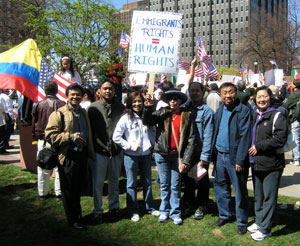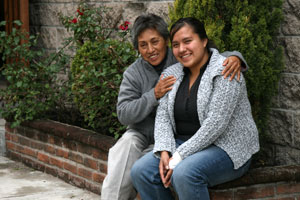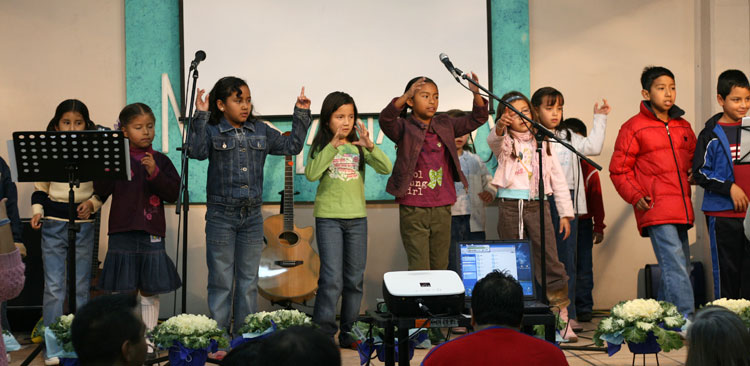 I’m working with the fourth immigration case that has taken me to an office in a building overlooking the mall between the National Constitution Museum and Independence Hall. On my last visit, the receptionist remembered that I had been in the office on my birthday. We went back to the counsel office and I listened as another immigrant who is part of a Franconia Conference congregation tell her story. I promised the lawyer that I accompany only complicated cases. He agreed.
I’m working with the fourth immigration case that has taken me to an office in a building overlooking the mall between the National Constitution Museum and Independence Hall. On my last visit, the receptionist remembered that I had been in the office on my birthday. We went back to the counsel office and I listened as another immigrant who is part of a Franconia Conference congregation tell her story. I promised the lawyer that I accompany only complicated cases. He agreed.
This has been an unexpected portion of my work in leadership cultivation and building intercultural relationships within Franconia Conference. It’s a role I readily embrace for the most part. I interned with an immigration lawyer who worked with Mennonite Central Committee in New York. I have a photo of New York City hanging in my hallway taken from Ellis Island to remind myself of the first view of the city that my own great-grandparents likely had at the turn of the 20th Century when they got off the ship from Hamburg, Germany.
These visits to the immigration lawyer are increasingly frustrating. Our economy demands and thrives on the work of immigrants, documented and undocumented. Meanwhile, we have constructed a complex system of laws and rules that make the system nearly impossible to navigate for both employers and immigrants. Initially, I would concede that the laws are simply complex. But more and more I believe that they are at the very least ridiculous but more likely unjust.
I believe that it’s best to work within the law rather than against it. I acknowledge that at least Paul and probably Jesus required submission to the law of the empire to a point. However, as our global economy moves at lightning speed, we’ve got to figure a way to at least respect the “alien†who lives among us, whether he’s pumping our gas or performing heart surgeries, whether she’s cleaning our toilets or running a multinational business.
Last spring, I attended a Philadelphia rally around the Day without Immigrants. I encountered brothers and sisters there from more than one Franconia Conference congregation. I saw Latino men wearing hats that suggested they’d worked with Mennonite-owned companies. Our hands are not entirely clean. If it wasn’t possible for an undocumented immigrant to land a job in Philadelphia within 48 hours of arriving, they’d stop coming.
 A Mennonite Central Committee worker recently suggested that Mennonites are good at cleaning up after messes, but less willing to figure out why we keep getting into them. Now into my fourth accompaniment situation for immigrants who are part of our congregations, I am compelled to respond differently to this situation. Sure, I can keep sitting in on these interviews and spend all of the birthdays of the rest of my life listening to the awkward situations and quagmires of process that are immigration realities. However, I am not content to continue accompanying our sisters and brothers to Center City law offices or to suggest that the situation is so complex that we can’t begin to address it in real ways either.
A Mennonite Central Committee worker recently suggested that Mennonites are good at cleaning up after messes, but less willing to figure out why we keep getting into them. Now into my fourth accompaniment situation for immigrants who are part of our congregations, I am compelled to respond differently to this situation. Sure, I can keep sitting in on these interviews and spend all of the birthdays of the rest of my life listening to the awkward situations and quagmires of process that are immigration realities. However, I am not content to continue accompanying our sisters and brothers to Center City law offices or to suggest that the situation is so complex that we can’t begin to address it in real ways either.
My great-grandparents left Austria-Hungary sometime before World War I in search of a better life in Pennsylvania. They brought their faith, their hopes and their fears from the hills of what is now Slovakia. They found work quickly as a construction worker and a maid. They helped start churches. They built a simple home. They made ends meet by selling vegetables and garlic from the garden. I believe in the possibilities of multi-ethnic US America as did they, as do the immigrants who are finding their way to our cities and small towns and our congregations.
The situation in our communities is changing quickly. Who would have ever guessed that a sign in front of Franconia Mennonite Church would invite persons to Spanish language Sunday School? We are in this together with the toil of immigrants and the dreams of our own immigrant forebearers. These days, the alien is both among us and is us. While we respect the laws of the land, the words of Christ provoke us to embrace immigrants whether documented or not as brothers, sisters, friends.
In that embrace, may we gain the courage to address the ridiculousness of our immigration system and to call for reform that will allow our sisters, brothers and friends to be treated respectfully here in our own land that still claims to be ready to receive “the tired and the poor and the huddled masses yearning to be free.â€

The opinions expressed in articles posted on Mosaic’s website are those of the author and may not reflect the official policy of Mosaic Conference. Mosaic is a large conference, crossing ethnicities, geographies, generations, theologies, and politics. Each person can only speak for themselves; no one can represent “the conference.” May God give us the grace to hear what the Spirit is speaking to us through people with whom we disagree and the humility and courage to love one another even when those disagreements can’t be bridged.
